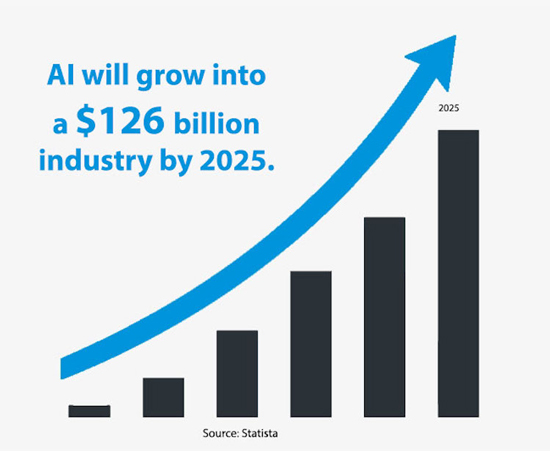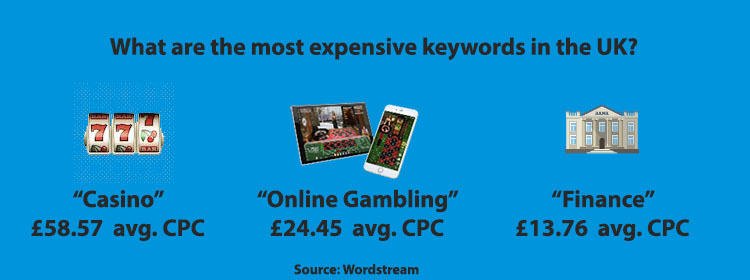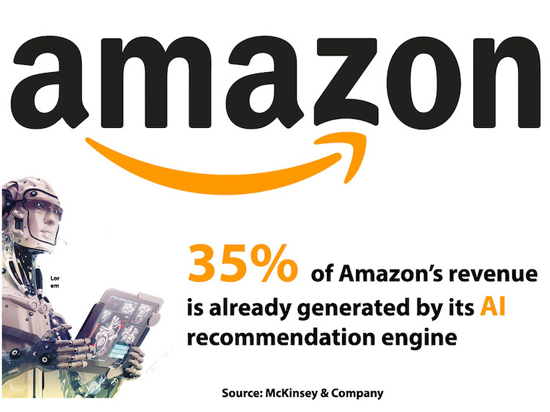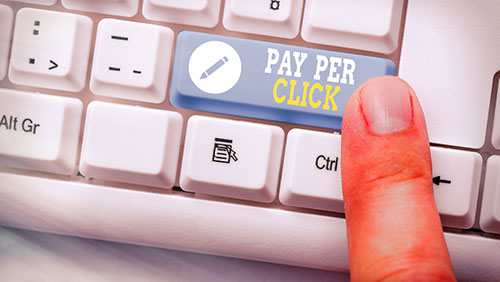This is a guest contribution by Paul Torzel of Newbettingsites.uk. If you would like to submit a contribution please contact Bill Beatty for submission details. Thank you.

When Google first introduced their AdWords program to us in 2000, all processes were completed manually. That has changed over time, with Google layering automated processes over the top.
Google AdWords, in some ways, were the invention of online advertising as we know it and these early steps paved the way for a successful future. It was an announcement in 2016 when Google CEO Sundar Pichai first announced that the world we live in would soon be known as an AI-first world.
Taking steps to ensure his company kept up to date with where we were heading, he said that Google would become an AI-first company.
Since then, and especially since their rebrand to Google Ads in July 2018, machine intelligence has shaped the future of AdWords. With a move towards AI, many PPC agencies and professionals across many industries are wondering how the changes will affect them.
There has been much talk about recent advertising in the U.K. gambling industry. The amount of gambling ad spend in the U.K. has risen by 54% since 2014. We now see the industry spending over £1.5 billion on the different marketing channels in use. A large part of the rise has been down to online spending, and we now see five times more money spend advertising online than on TV.
Betting sites such as those seen on newbettingsites.uk are hoping to capture new players online by using this strategy, with PPC a strong part of that. Gambling makes up around 8% of the U.K. advertising market, showing the size of the growth.

What is AI?
AI stands for artificial intelligence and is becoming hugely important in your daily life. Everything from the voice search on your phone, your opponent on any games you play and much more is all controlled by AI.
What AI does is it provides a solution or solves a problem that previously required humans, and now it no longer does. AI evolves quickly and is constantly becoming smarter and improving.
There are two basic types of AI. The first is manually programmed AI, which requires code to be written by someone that tells the computer how to react and act when faced with a problem. The second is machine learning. This instance sees the computer teach itself and use past experiences to get things right in the future.
What Technology is Behind AI in PPC?
There are three ways in which AI is driving PPC intelligence, three things that will determine the future of PPC for those in the gambling industry.
PPC Intelligence Using Pre-Programmed Rules
It is possible to make a machine appear intelligent by programming the responses it gives in scenarios, this is what we saw before the invention of AI as a research field in 1956. However, this is limited because everything must be programmed, and it is unable to deal with edge cases.
In PPC, this would be the same as having a list of automated rules written for a scenario and using them to decide the outcome. Trying to implement pre-written rules into the real world is not viable though, which limits the use of this type of AI.
PPC Intelligence Using Symbolic Representations
In the period between 1950 and the 1980s, there was a big evolvement of AI which used symbolic systems. It was believe at this point that machines could make logical decisions like humans. However, in terms of PPC with this, if you have a brand new keyword then there is no correct bid level, because there is no past data to use.
A machine can make a reasonable guess, but that is all. This is done by teaching the machine about campaigns and keywords that are linked, so like us, if something is new but in an area we know about, the machine can guess the PPC cost.
PPC Intelligence Using Statistical Learning
Most the successful AI driven PPC work today is based on statistical learning. The quality score is a perfect example of this. Google will take a look at historical behaviour from humans that have clicked and find the likelihood of their conversion.
This translates into a score which gives us a figure to use when working out how likely it is that the search will turn into a conversion. There are other factors that AdWords can use to decide on the score, such as location, the time of day, the audience it is aimed at and the device that is being used.
What are the Levels of AI in PPC?
There are many levels of AI in PPC. A piece written by Land’s Frederick Vallaeys describes them all brilliantly and shows both the limits and the capabilities of the AI we are using.
• Level 0 – Everything in the PPC account is done manually
• Level 1 – AI monitors and alerts but take no automated action
• Level 2 – individual management tasks are automated, but there is no interconnection between the tasks
• Level 3 – automation handles multiple tasks together and understands the interplay of the managed components
• Level 4 – human oversight is no longer required as long as the ads are kept within tight bounds
• Level 5 – full-blown AI takeover, where humans are no longer required and ad systems are so smart it knows how to grow any business
The Benefits of Using AI in Your PPC Strategy
This has been a thoroughly researched topic for those who are looking to combine AI with the PPC world. Land’s Frederick Vallaeys is one of the leading analysts in the PPC industry and has done some great work on this topic.
• Instant Results – Instant results is the biggest benefit for many. These can come far quicker than if using a traditional SEO method. By being at the top of the Google SERPS you are putting yourself in a position that would take far longer to reach via SEO
• Quality of Traffic – By placing yourself at the top of the page on targeted keywords, if you use the correct keywords then you know the traffic is going to be of a high quality. You will be receiving visitors who are ready to be turned into conversions.
• PPC & SEO Work Well Together – There is no one strategy you must use, PPC and SEO go well together. Using PPC to get early visitors and conversions and then optimising your content using SEO based on those visitors can help you gain traffic both immediately and in the long run.
• Customisable – You set the parameters with PPC. Your budget, the keywords, who you want to target and much more are all decided by you. By monitoring results and how you bring conversions in, you should be able to target your most profitable keywords using the information you have.
How to Improve Your Advertising Campaign
We all want the best ads we can possible put together, so where are the areas for improvement? Here are three ways in which you can improve your advertising campaigns.
Predict Behaviour
AI can use market intelligence to learn about behaviours, purchase histories, browsing, devices and much more. It can also work in a way that links these together and this is what you can use. AI can work out the steps a human will take next even quicker than a human can. This should lead you to the searches and keywords that are most likely to result in conversions.
Adjust PPC Bids Automatically
This is all about having AI on your side and trusting it. You can set AI up to automatically adjust your PPC bids. This should avoid you bidding too low on important PPC ads that can set you up with new leads. There are many tools you can use out there to do this, and different levels of automation you can use on your ads. Just keep an eye on your budget if going full automation.
Pause Low Performing Ads
You can use AI to monitor how each ad is performing and decide to pause those performing the worst. This can keep your quality score high, and with that you should see a lower cost per conversion for your ads.
Conclusion
To conclude, AI is extremely important and it will really help those managing PPC campaigns. It can take care of daily tasks while also offering new opportunities for you to follow up.
There are three things to take away from this for anyone running PPC in the gambling industry:
1. Learn and understand AI as much as possible, this can lead to new opportunities
2. Have a business plan that focuses on using AI in the best possible way to move forward
3. Humans will play a role, but a different one, be prepared for that change

About the author:
Paul Torzel is the owner and operator of newbettingsites.uk.
